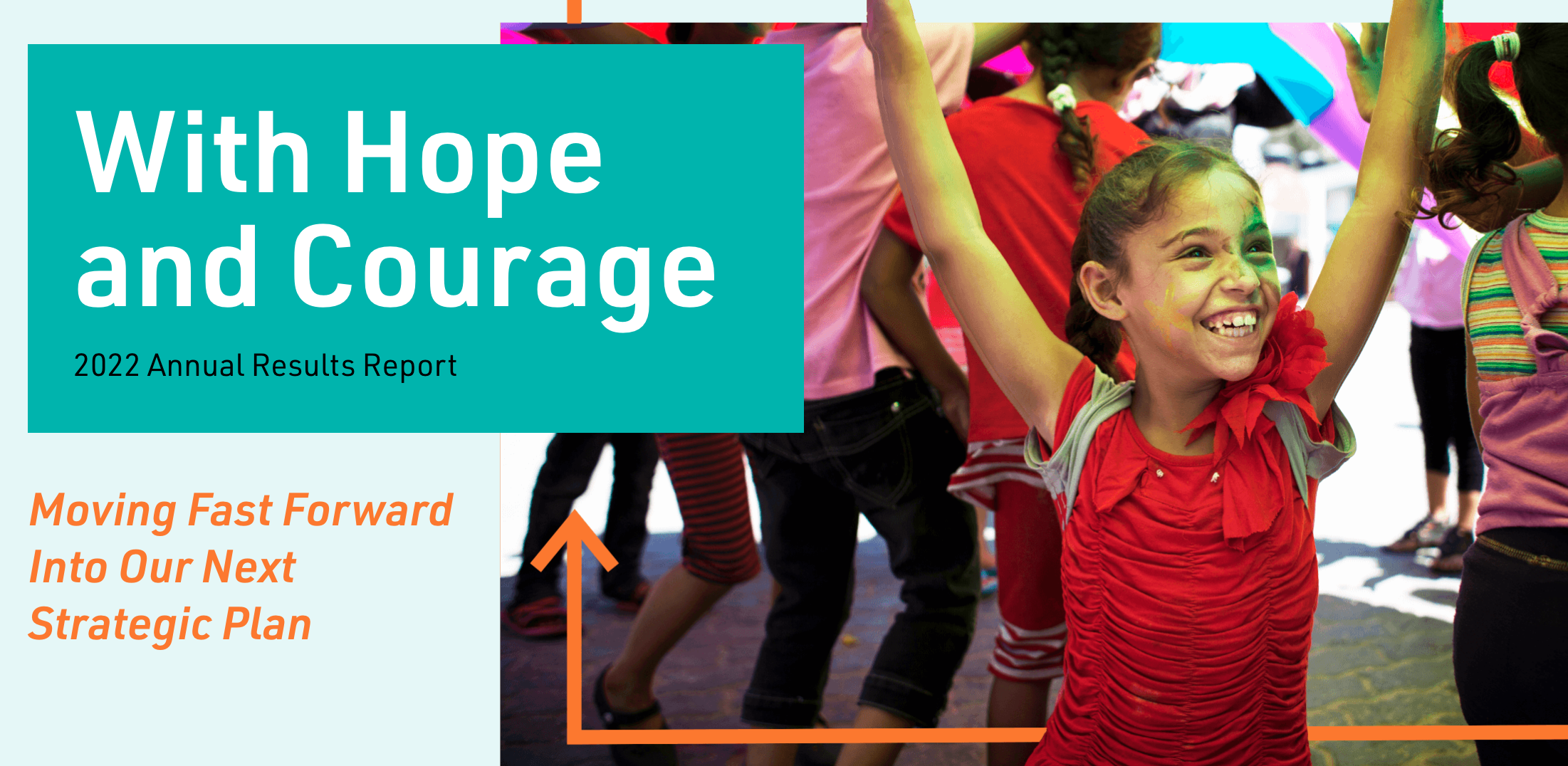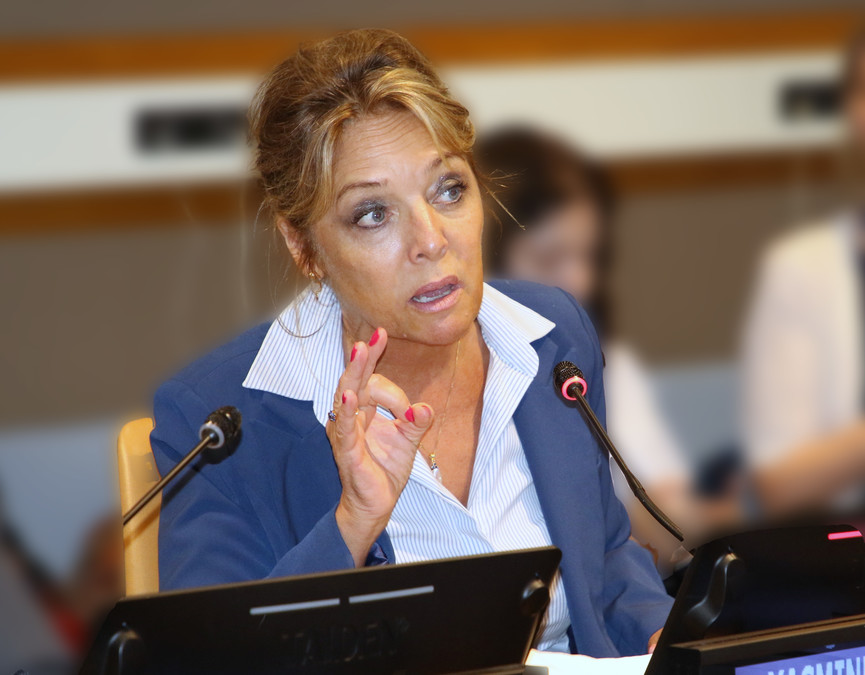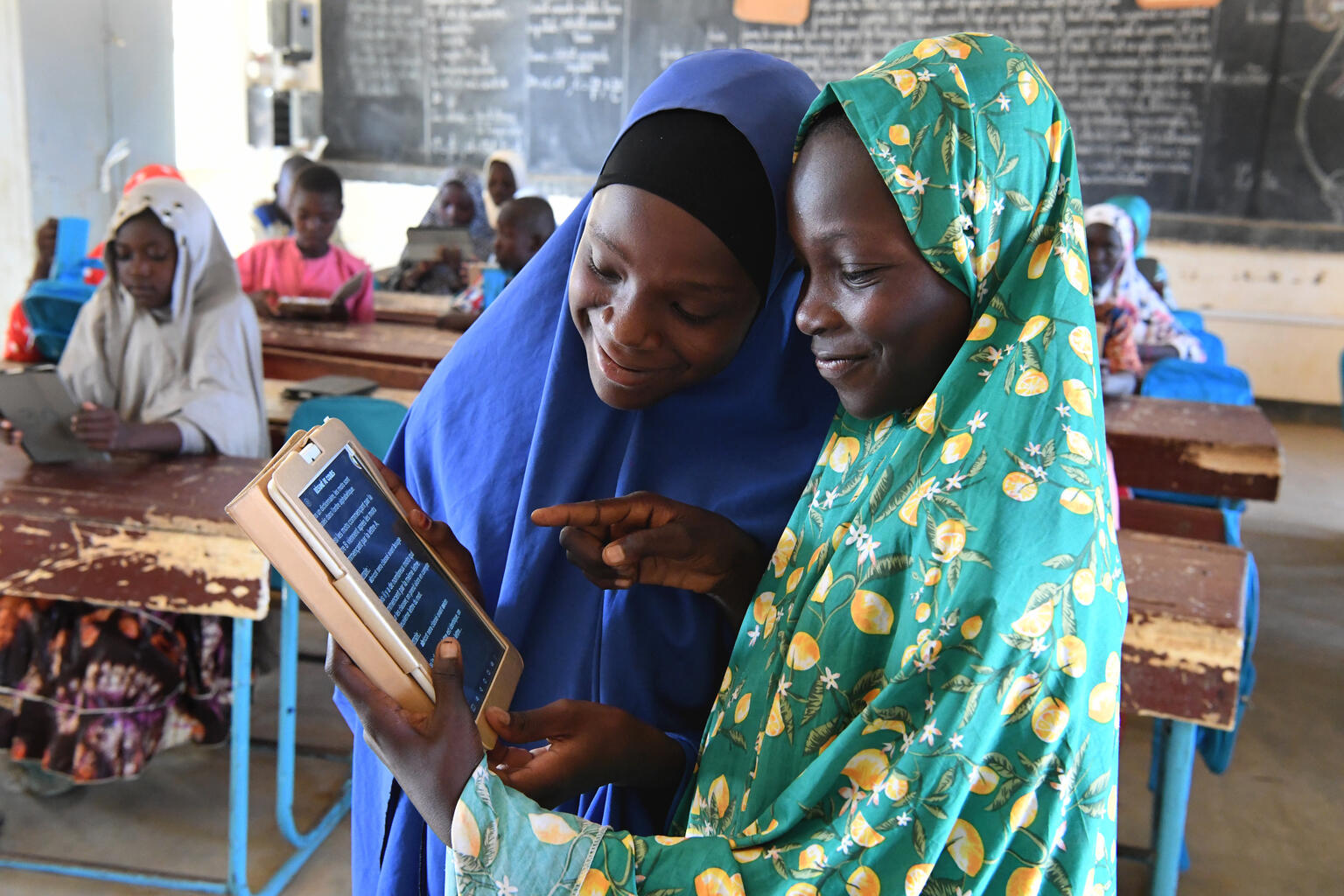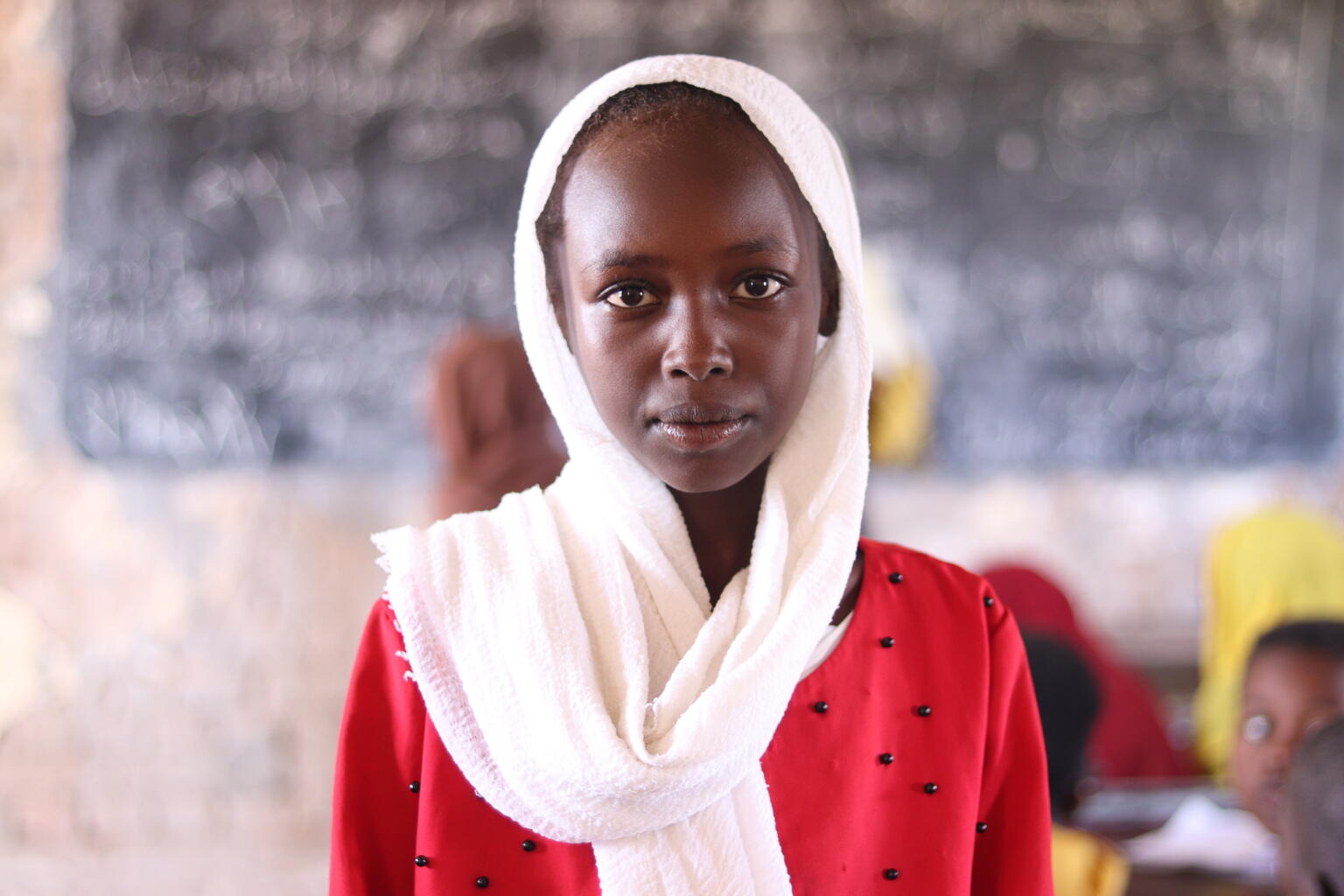With Hope and Courage, They Inspire Us

“My dream is to become a teacher,” says 13-year-old Alia. A small glimmer of hope can be traced in her beautiful, almond-shaped, brown eyes. Together with her mother, siblings and aunt, Alia has fled the conflict in Sudan to Chad. With extraordinary courage to survive, she made the harrowing journey at night across checkpoints, threatened by guns and militia roaming around in the dark. While her eyes are still hollow from the flight, I see that sparkle for a split second: she still has hope. My colleagues and I met Alia with her mother in Chad, right on the border of Sudan. Alia’s resilience and capacity to hold onto hope serve as a great reminder of what needs to be done, infusing us all with the inspiration to actually do it: invest in her education! This year’s United Nations General Assembly Week revolves around the Sustainable Development Goals and Climate Action. By connecting the dots, we all know that education is the most essential foundation for every human being to achieve the skills and competencies for providing basic services to a population, govern a country and effectively manage and protect Mother Earth. We know that without inclusive, quality education, we cannot end extreme poverty, achieve gender-equality, ensure health and save our planet from climate disasters. It is simply impossible. With no teachers, no doctors, no scientists, no innovators – all while child marriage and unwanted pregnancies continue to escalate for girls – there is no sustainable way to achieve these other important goals and ambitions. By the same token, we all know that we cannot have a world where the educated in some privileged regions determine what basic service is a priority as opposed to another for another nation’s people. Real empowerment means ensuring that every child and adolescent – no matter who or where they are – can access quality education, thus allowing them to take on the decisions and responsibilities for rebuilding their countries. In the same vein, we know we must avoid contributing further to existing socio-economic global inequities. This is why we focus on the most disempowered – those left furthest behind from the Sustainable Development Goals. They are the 224 million girls and boys who are most impacted by climate-induced disasters, armed conflict and forced displacement. Education is the key that unlocks all rights, goals and ambitions. Do we have the hope and courage to invest in education as the quintessential contribution that we can make to humankind in the 21st century? If we listen to Alia, just one of 224 million children and adolescents in her situation, we can be inspired to make that investment, now. It is not even a calculated risk – thus, far from the real risks Alia and her family took when fleeing Sudan – because proven models for delivering education and learning outcomes to those left furthest behind exist. The political will amongst host-governments is present. The capacity amongst United Nations agencies, civil society, local communities and populations is more powerful than ever. The in-country coordination systems are in place and the UN Secretary-General’s Reform on Joint Programming and bridging the humanitarian-development-peace nexus continue to be actioned as I write this. Indeed, important progress is being made. As outlined in Education Cannot Wait’s new “With Hope and Courage: 2022 Annual Results Report,” ECW and our strategic and implementing partners have already reached close to 9 million crisis-impacted children and adolescents with life-changing quality, holistic and child-centred education. During ECW’s first six months of operations as a catalytic pooled funding mechanism for SDG4 in emergencies and protracted crises, we jointly reached 700,000 children and adolescents. Just a few years later, by 2022, we reached nearly 9 million. This model of joint cooperation, coordination and collaboration works! Still, much more needs to be done. The biggest challenge is securing sufficient financial investments for this innovative model – a model of United Nations reform and in achieving the SDGs. In close cooperation with the private sector it is a model of combining hard collective and coordinated work on the ground, the humanitarian imperative, development principles, with the spirit of both humanity and entrepreneurship towards results and impact. Yet, education in crisis contexts faces a massive funding gap. Only 30% of education in emergencies requirements were funded in 2022 and just around 3% invested in education. Translate that into the budget for a family with school-aged children in more privileged parts of the world. No parents would put education for their children at the bottom of the household budget and allocate only 3% to their children’s future. Alia is our child, too; she is part of our shared humanity. The UN General Assembly week is our chance to define the course of history. ECW is a global movement driven by the people, for the people and no one has more hope and courage than the young generation, represented by Alia and millions of young people like her caught in the toughest contexts in the world. In this month’s high-level interview, we connect with two brilliant young leaders – Mutesi Hadijah and Hector Ulloa – who were recently elected to represent the youth constituency on ECW’s High-Level Steering Group and Executive Committee. As a catalytic pooled funding mechanism aimed at supporting our partners in-country with financing, we need to hear the voices of the youth who can help speak for Alia and millions like her. Our valued donors and our strategic implementing partners have given so much to build ECW into the transformational, catalytic movement it is today, delivering life-changing results for crisis-affected children around the world. Due to the funding gap, we need more hope, we need more courage, we need more courageous investments in education. As The Rt. Hon. Gordon Brown, UN Special Envoy for Global Education and Chair of the ECW High-Level Steering Group, so eloquently states in his foreword to our new Annual Results Report: “With hope and courage, we must rise to the challenges before us. We must rise to the challenge of a world set afire by climate change, forced displacement, armed conflicts and human rights abuses.” As world leaders, UN and civil society representatives, donors and the private sector from all walks of life gather in New York this week, let us invest in education inspired by Alia’s invincible courage and hope.




